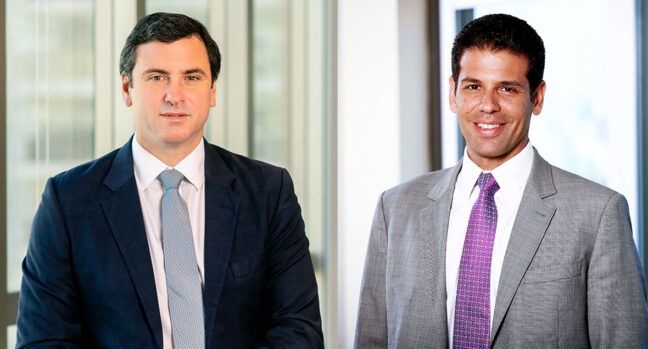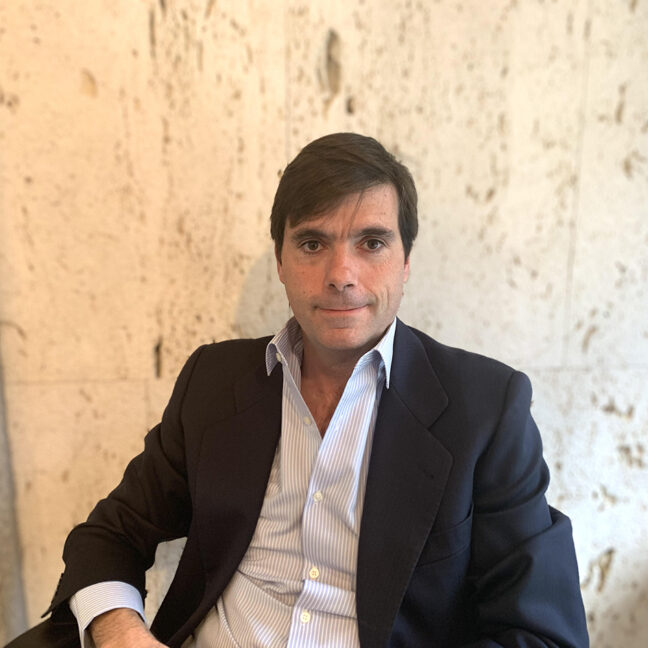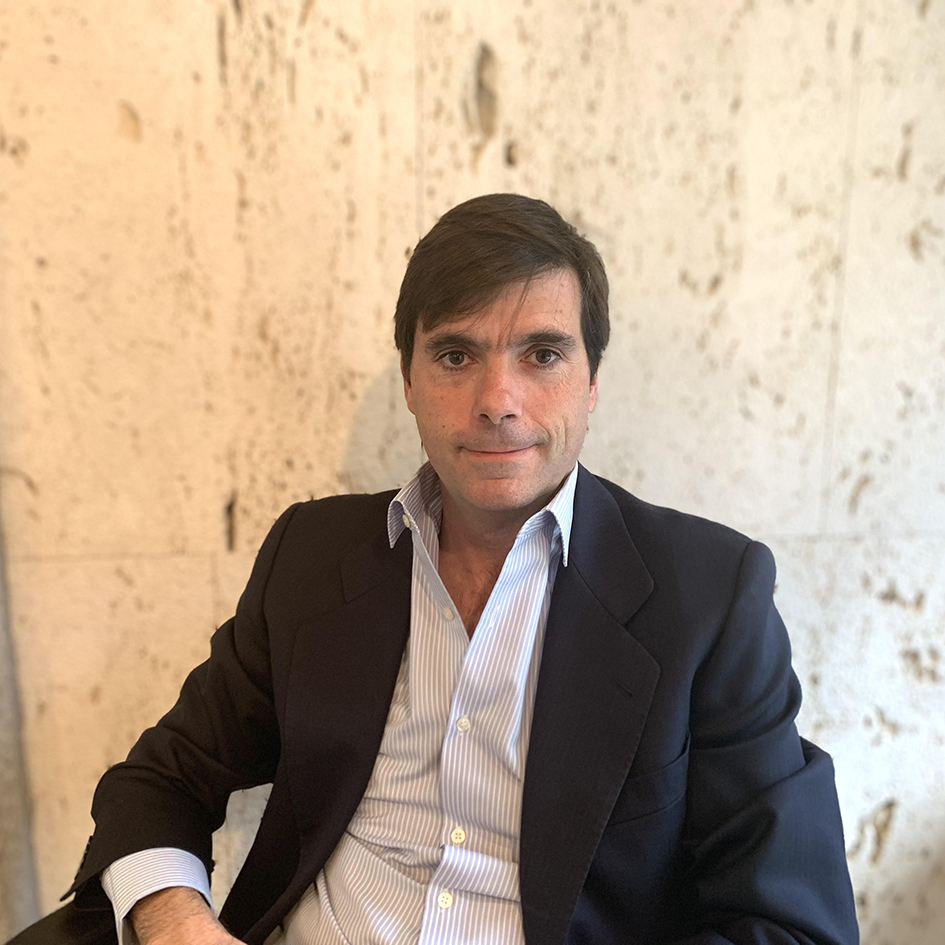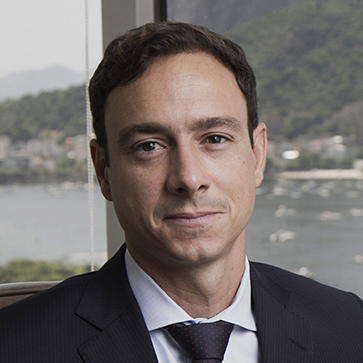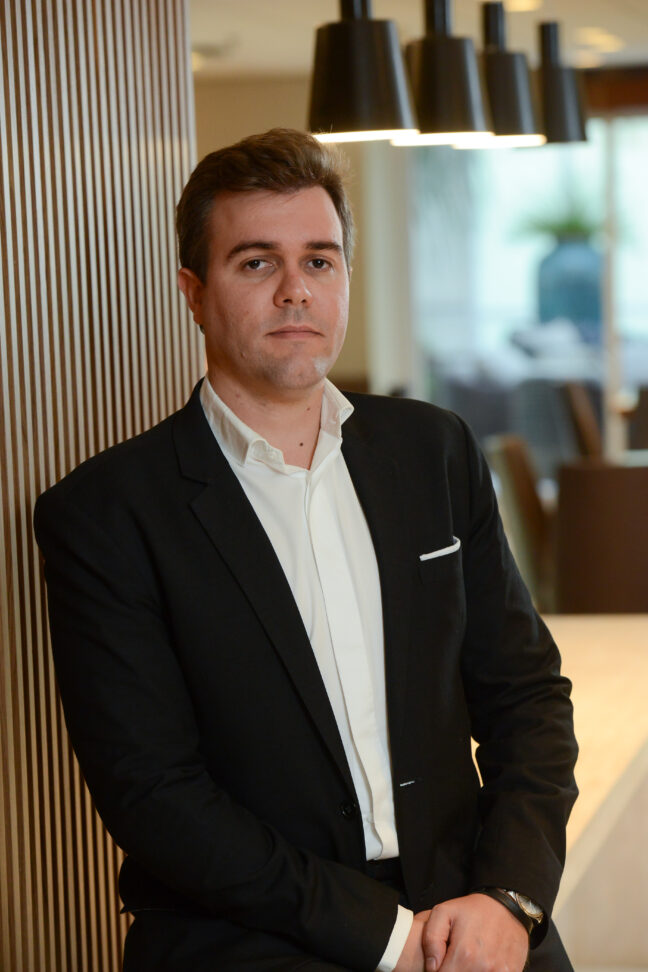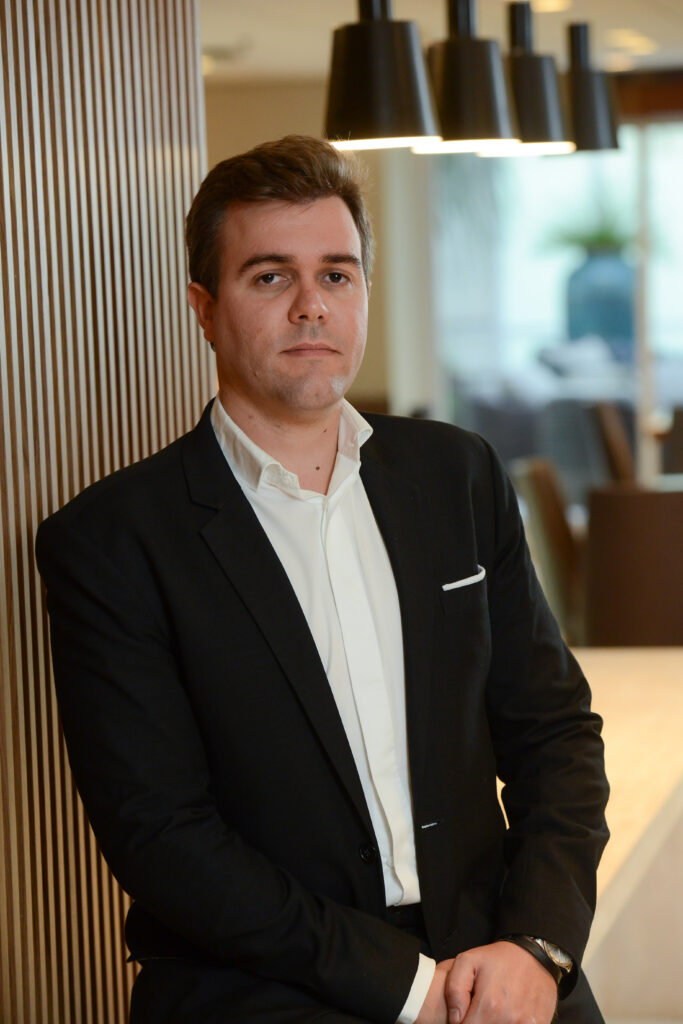Content available in English and Portuguese (scroll down)
TTR Dealmaker Q&A with Machado Meyer Advogados Partners Elie J. Sherique and Guilherme Bueno Malouf
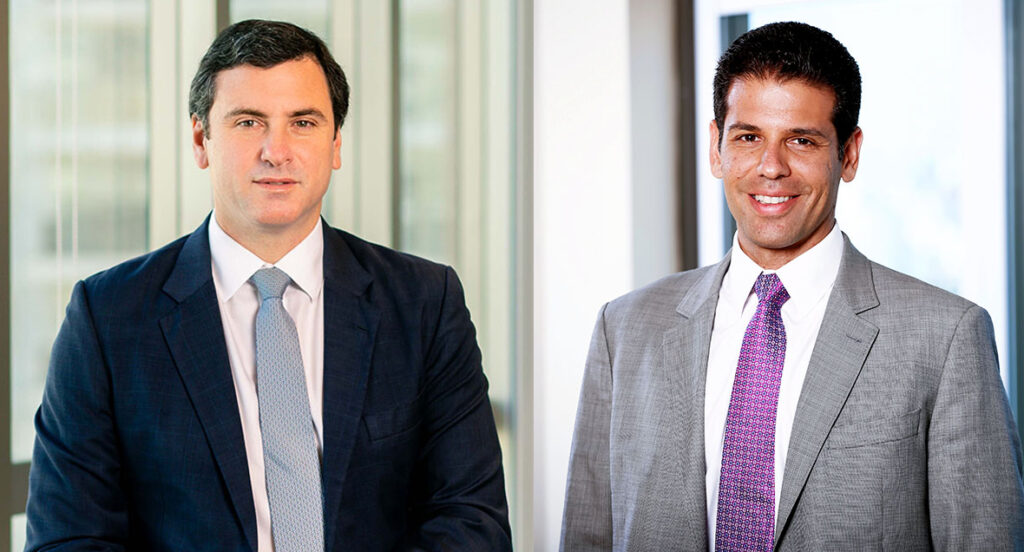
Sherique is a specialist in corporate law, national and cross-border mergers and acquisitions, private equity operations, capital markets, and corporate governance, besides joint ventures, corporate reorganizations, international investments, structured operations, business transactions, financial products and operations involving publicly-held companies. He has previous experience in operations concerning several sectors, in particular, automotive, banking, construction, electronics, energy, pharmaceutical, real estate, mining, oil and gas, financial services, general services, technology, telecommunications, and retail. Is part of the Latin American & Iberian Desk of Machado Meyer, assisting some of the main Spanish and Latin American investors in Brazil.
Expert in M&A transactions, private equity investments, organization of structured investment funds, especially Equity Investment Funds (FIP), Real Estate Investment Funds (FII), and Credit Rights Investment Funds (FIDC). Malouf has extensive experience in the food and beverage, steel, cement, real estate, energy, services, technology, and retail. In addition to serving as head of our M&A practice, Malouf is also a member of the Asian Desk of our firm.
TTR: ¿What are your main conclusions for the M&A market in 2022?
The 2021 was an exceptional year to M&A transactions carried out in Brazil and we expect the market to remain warm for at least the next few months. We can relate this expectation to some factors, among them: the fact that in 2021 many companies capitalized themselves through IPOs and follow-ons with the objective of financing acquisitions in line with their expansion plans and the “unlocking” of the pipeline of ongoing operations that had been frozen because of the pandemic. We have been very active in operations in the technology, energy, financial services, healthcare and agribusiness sectors. We believe that in 2022 we will still see the effects of such trends, despite the turmoil arising from a very polarized election year and an external scenario with wars and rising interest rates in the US. In particular, we believe that the aforementioned sectors, especially technology and healthcare, will continue to be very strong and attract interest from strategic players and financial sponsors.
TTR: What are the most relevant drivers for consolidating the M&A market in Brazil, in 2022?
The post-pandemic, macroeconomic aspects and the presidential elections at the end of the year bring challenges for local companies as well as impact on investment decisions. Due to these factors, activity in the mergers and acquisitions market has been quite intense at the beginning of the year and consolidation movements have been noticed in several sectors of the economy. The availability of capital from certain publicly-held companies that in recent months have raised funds through the capital market, the less leveraged valuation value of companies in certain sectors of the economy and the need for funds to carry out investments for those companies that have not accessed the market of capital and/or received investments in recent years, are essential factors to drive consolidation in the M&A market. We have seen that the retail, health, technology and energy sectors have stood out in this consolidation movement.
TTR: In which sectors might international investors find the biggest opportunities in Brazil? Why?
We understand that the energy market has been generating good business opportunities in the M&A market, as several companies in the sector have been investing in renewable matrices and developing new forms of energy generation (not to mention the energy transition movement). Brazilian agribusiness deserves to be highlighted due to the high global need for such commodities in the post-pandemic period, as well as the current exchange rate value that maximizes the return of companies in the sector on exports. We believe that the technology sector will remain one of the most active sectors, attracting the attention of strategic and financial investors. Finally, we also bet on the health sector, in several of its aspects (clinics and hospitals, pharmaceuticals, healthtech). This sector proved to be heated in 2021 and continues with a strong trend.
TTR: Machado Meyer ha sido uno de los asesores líderes en operaciones de energías renovables en Brasil, ¿Cuáles serán las perspectivas de este sector en el mediano y largo plazo?
We have been working quite often for companies in the renewables sector, both on the buying and selling side. In recent months we have represented local players and foreign investors who have shown a lot of interest in renewable energy matrix projects. As Brazil has a favorable regulatory environment and a very advantageous geographic capacity, we believe that the renewable energy sector will remain very active and heated in the medium and long term.
TTR: How will the conflict between Russia and Ukraine impact the energy sector, and what does this mean for M&A market?
The conflict between Russia and Ukraine has unleashed an unprecedented impact on gas supplies to Europe. The dependence of several European countries on this energy source was evident. This scenario has made the discussions regarding the need to implement the energy transition to cleaner and renewable energy sources to gain strength, which in a way can even help the flow of operations in Brazil. On the other hand, wartime generates greater conservatism on the part of investors, who may choose to “play safe” and postpone expansion plans. The increase in US interest rates may intensify this scenario.
TTR: How has Machado Meyer handled the crisis in terms of advising clients and what opportunities has the company identified through the current situation in the country?
In recent years Machado Meyer has been consolidating its leadership position in the execution of M&A transactions, both in terms of the number of transactions carried out as well as the volume of transactions handled by the firm’s partners. In recent years, the firm has worked on a large number of multi-billion M&A transactions. In 2021, we were the leading firm in Latin America in terms of the number of operations carried out in M&A, capital markets and debt issuance transactions. We understand that our experience in relevant M&A transactions, combined with our relevant client base and the level of seniority of the partners working in M&A transactions, has made Machado Meyer’s M&A practice have had an exceptional performance in recent times of crisis.
In times of crisis, like the current one, we always try to put ourselves in the position of our customers and help them navigate the (more or less strangled) processes they were going through. Such assistance even includes the adoption of more flexible billing arrangements. In terms of opportunity, we understand that the resilience of agribusiness and the attractive price of our assets (especially after the devaluation of the real) represent important attractions for investors and times explored in the investor market.
TTR: What will Machado Meyer main challenges be in terms of M&A deals in Brazil during 2022?
Surely the biggest challenge we will have in 2022 will be the presidential elections in October. Historically, presidential elections in Brazil end up generating uncertainty and distrust of certain investors regarding the continuity of regulatory, economic and political agendas. In any case, our M&A team is very confident that despite the current political scenario, we have enough subsidies to support our clients in order to carry out M&A transactions with confidence and security even in adverse political and electoral conditions.
Portuguese version
Especialista em direito societário, fusões e aquisições domésticas e cross-border, operações de private equity, mercado de capitais, governança corporativa, além de joint ventures, reorganizações societárias, investimentos estrangeiros, operações estruturadas, transações comerciais, produtos financeiros e operações envolvendo companhias de capital aberto. Tem experiência em operações envolvendo diversos setores, principalmente automotivo, bancário, construção, eletroeletrônico, energia, farmacêutico, imobiliário, mineração, petróleo e gás, serviços financeiros, serviços em geral, tecnologia, telecomunicações e varejo.
É membro do Latin American & Iberian Desk do Machado Meyer, assistindo a alguns dos principais investidores espanhóis e latino-americanos no Brasil.
Especialista em operações de M&A, investimentos de private equity e constituição de fundos de investimento estruturados, principalmente Fundos de Investimento em Participações (FIP), Fundos de Investimento Imobiliário (FII) e Fundos de Investimento em Direitos Creditórios (FIDC). Malouf tem ampla experiência nos segmentos de alimentos e bebidas, cimento, serviços de segurança, imobiliário, energia, serviços, tecnologia e varejo. Além de atuar como head da nossa área de M&A, Malouf também é membro do Asian Desk do nosso escritório.
TTR: Quais são suas principais conclusões para o mercado de M&A no 2022?
O ano de 2021 foi um ano excepcional em termos de operações de M&A realizadas no Brasil e temos a expectativa que o mercado se mantenha aquecido pelo menos pelos próximos meses. Podemos relacionar tal expectativa a alguns fatores, dentre eles: o fato de que em 2021 muitas empresas se capitalizaram por meio de IPOs e follow-ons com o objetivo de financiar aquisições em consonância com seus planos de expansão e o “destravamento” do pipeline de operações em curso e que haviam sigo congeladas por conta da pandemia. Temos estado bastante ativos em operações nos setores de tecnologia, energia, serviços financeiros, saúde e agronegócio. Acreditamos que em 2022 ainda observaremos os efeitos de tais tendências, em que pesem as turbulências advindas de um ano eleitoral muito polarizado e um cenário externo com guerras e elevação dos juros nos EUA. Em particular, acreditamos que os setores acima mencionados, especialmente tecnologia e saúde, seguirão muito forte e atraindo interesse de players estratégicos e de financial sponsors.
TTR: Quais são os fatores mais relevantes para a consolidação do mercado de M&A no Brasil, em 2022?
O pós-pandemia, os aspectos macroeconômicos e as eleições presidenciais no fim do ano trazem desafios para as empresas locais bem como impactam nas decisões de investimento. Em razão de tais fatores, a atividade no mercado de fusões e aquisições tem sido bastante intensa neste início de ano e movimentos de consolidação vêm sendo percebidos em diversos setores da economia. A disponibilidade de capital de certas companhias abertas, que nos últimos meses captaram recursos através do mercado de capitais, o valor menos alavancado de avaliação de empresas de certos setores da economia e a necessidade de recursos para realização de investimentos para aquelas empresas que não acessaram o mercado de capitais e/ou receberam investimentos nos últimos anos, são fatores essenciais para impulsionar a consolidação no mercado de M&A. Temos visto que os setores de varejo, saúde, tecnologia e energia tem se destacado neste movimento de consolidação.
TTR: Em quais setores os investidores internacionais podem encontrar as maiores oportunidades no Brasil? Por quê?
Entendemos que o mercado de energia vem gerando boas oportunidades de negócio no mercado de M&A pois diversas empresas do setor vêm investindo em matrizes renováveis e desenvolvimento de novas formas de geração de energia (sem contar o movimento de transição energética). O agronegócio brasileiro merece destaque em razão da alta necessidade mundial por tais commodities no pós-pandemia, bem como pelo valor atual do câmbio que maximiza o retorno das empresas do setor nas exportações. Acreditamos que o setor de tecnologia se manterá como um dos setores mais ativos, atraindo atenção de investidores estratégicos e financeiros. Por fim, apostamos também no setor de saúde, em várias de suas vertentes (clínicas e hospitais, farmacêutico, healthtech). Esse setor se mostrou aquecido em 2021 e segue com tendência de forte movimentação.
TTR: Machado Meyer é um dos principais assessores em operações de energia renovável no Brasil. Quais são as perspectivas desse setor no médio e longo prazo?
Temos atuado com bastante frequência para empresas do setor de renováveis, seja na ponta compradora bem como na ponta vendedora. Nos últimos meses temos representado players locais e investidores estrangeiros que têm mostrado bastante interesse nos projetos de matrizes de energia renovável. Em razão do Brasil possuir um ambiente regulatório favorável e uma capacidade geográfica bastante vantajosa, entendemos que o setor de energia renovável seguirá bastante ativo e aquecido no médio e longo prazo.
TTR: Como o conflito entre a Rússia e a Ucrânia afetará o setor de energia, e o que isso significa para o mercado de fusões e aquisições?
O conflito entre Rússia e Ucrânia desencadeou um impacto sem precedentes no fornecimento de gás para a Europa. Ficou evidente a dependência de diversos países europeus a esta fonte de energia. Tal cenário fez com que as discussões relativas à necessidade de se implementar a transição energética para formas de energias mais limpas e renováveis ganhassem força, o que de certa forma pode até ajudar o fluxo de operações no Brasil. Por outro lado, tempos de guerra geram maior conservadorismo por parte de investidores, que podem optar por “play safe” e postergar planos de expansão. O aumento de juros norte-americanos pode intensificar esse cenário.
TTR: Como o Machado Meyer lidou com a crise em termos de assessoria aos clientes e quais oportunidades o escritório identificou na situação atual do país?
Nos últimos anos o Machado Meyer vem consolidando sua posição de liderança na execução de operações de M&A seja pela quantidade de operações realizadas bem como pelo volume das operações trabalhadas pelos sócios do escritório. Nos últimos exercícios, o escritório trabalhou em um grande número de operações de M&A multibilionárias. Em 2021, fomos o escritório líder da América Latina em quantidade de operações realizadas em M&A, mercado de capitais e transações de emissão de dívida. Entendemos que nossa experiência em operações relevantes de M&A, aliada à nossa relevante base de clientes e o nível de senioridade dos sócios que atuam em operações de M&A, fez com que a prática de M&A do Machado Meyer tivesse tido um excepcional desempenho nestes últimos tempos de crise.
Em tempos de crise, como o atual, tentamos sempre nos colocar na posição de nossos clientes e ajudá-los e navegar pelos processos (mais ou menos estrangulados) por que passavam. Tal auxílio inclui, inclusive, a adoção de arranjos de cobrança mais flexíveis. Em termos de oportunidade, entendemos que a resiliência de nosso agronegócio e o preço atrativo de nossos ativos (especialmente após a desvalorização do real) representam atrativos importantes para investidores e tempos ao explorado junto ao mercado investidor.
TTR: Quais serão os principais desafios do Machado Meyer em termos de transações de M&A no Brasil durante 2022?
Seguramente o maior desafio que teremos em 2022 serão as eleições presidenciais no mês de outubro. Historicamente, eleições presidenciais no Brasil acabam por gerar incertezas e desconfiança de certos investidores quanto à continuidade de pautas regulatórias, econômicas e políticas. De toda forma, nossa equipe de M&A está bastante confiante que apesar do cenário político atual, temos bastante subsídios para apoiar nossos clientes de forma que realizem transações de M&A com confiança e segurança mesmo em condições político-eleitorais adversas.
